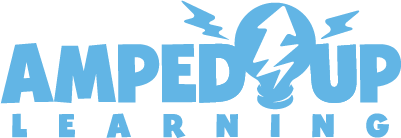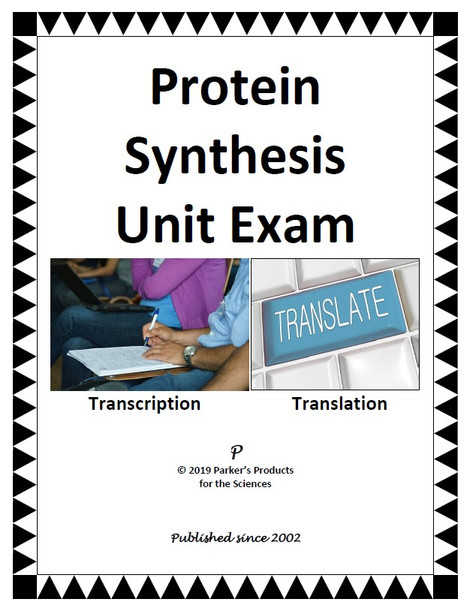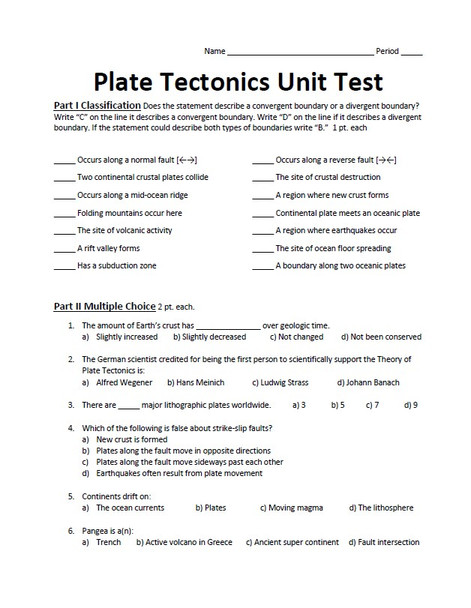Description
This listing features a four-page unit exam about protein synthesis for a general high school biology class. It comes with a four-page key with the answers highlighted in red font.
This assessment has four sections. I parenthesized the number of questions in each section.
- Multiple choice (16)
- Short Answer (5)
- Agree or Disagree and correct the underlined word in the statement if it is false (13)
- Graph Interpretation (5)
This test covers the following.
- The two main steps of protein synthesis (transcription and translation)
- The sequence of events
- The functions of the critical molecules (from RNA polymerase to tRNA)
- The morphology (structure) of the integral molecules and organelles
- Compare and contrast key terms (gene versus a chromosome, codon versus an anticodon, etc.)
- The bonds that form between the nitrogenous bases and between amino acids
- Our cells’ source of amino acids
- Key facts (i.e., number of amino acids, stop codons, codons, etc.)
- Base pairing rules
- What determines the type of protein made in the ribosome?
- The big picture – how genes are expressed in the form of traits when our cells make proteins
- The source of mutation
- Different kinds of mutation (Point versus frameshift error)
- How the damage to DNA from environmental radiation or errors in transcription or translation could result in a variation in the form of a medical condition or the microevolution of a species
- Interpret a line graph that plots the grams of protein consumed versus the grams of protein made during translation plotted against time in hours.
This PDF file will become editable upon conversion to Microsoft Word using an Adobe Acrobat Reader app.
This activity complements the Protein in our Diet – Protein Synthesis Connection Activity in my store.
Order with confidence! My vast history of publishing is at your service. I have sold hundreds of different digital downloadable lessons from online stores and over 15,000 reusable science kits and games collectively through Science Kit and Boreal Laboratories, Lab-Aids, Flinn Scientific, and Teacher's Discovery dating back to 2002.




















